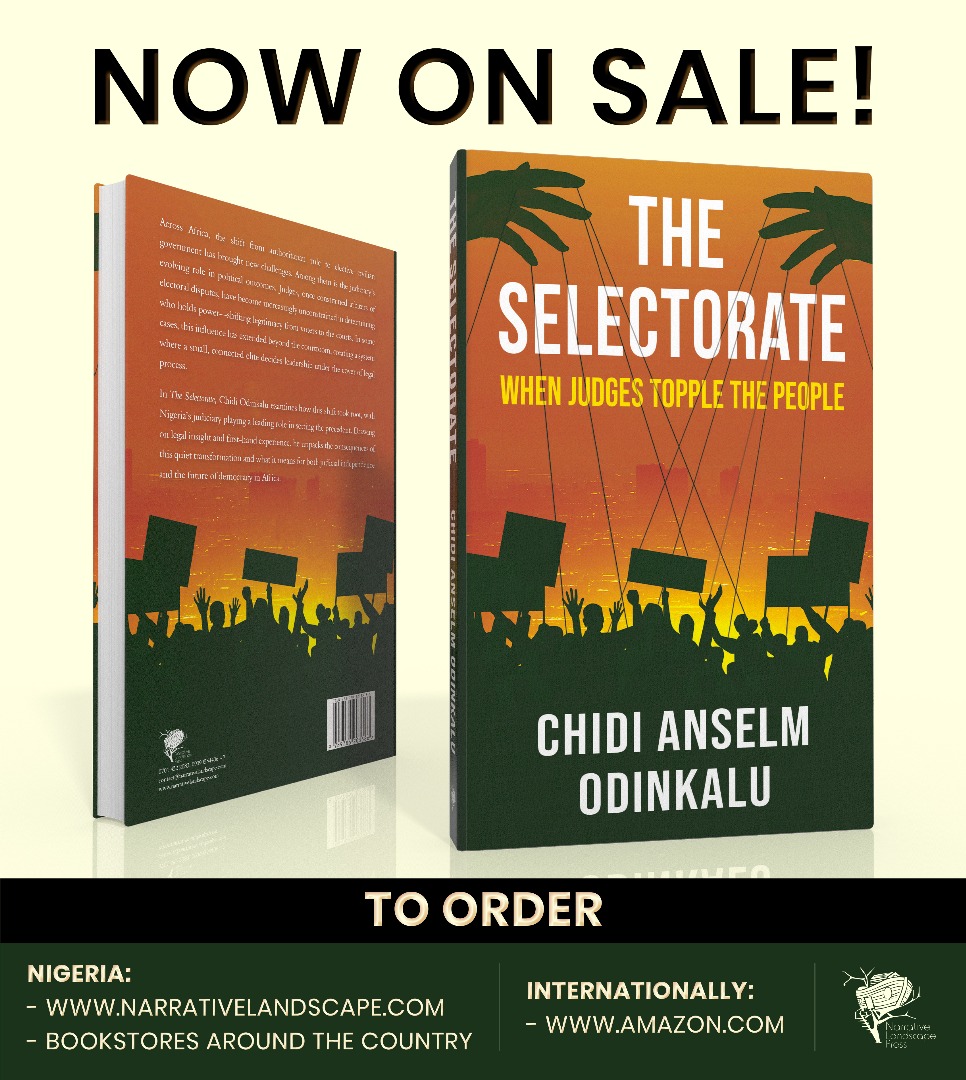Public Affairs Analysts have in different ways described the Nigerian Senate as lazy, avaricious and with little interested in law making. Recently they came under attack for prescribing 15 years jail term for persons found to be negotiating with bandits for the release of loved ones. Curiously, they were silent on the bandits who are the perpetrators. Prof Ernest Ojukwu, SAN in this conversation with Lillian Okenwa bared his mind on this, the indiscriminate killing of young men by security operatives in the South East, and other burning issues noting that: “The reason for our incapacity is that the foreign investors that have that capacity are reluctant to come.”
“I think they have misunderstood what it means to be relevant,” the former Deputy Director General of the Nigerian Law School, Enugu Campus began, as he addressed the approach of Nigeria’s federal legislators.

“You cannot legislate against payment to bandits or terrorists. It’s not something you can criminalise, because a person paying a ransom is a victim. You cannot make him a criminal. I think they have misunderstood what it means to legislate for the country. There are so many aspects of our governance that needs legal intervention and reforms but they are not vocal on those issues.”

Speaking on the IGP’s shoot at sight order, turning Eastern Nigeria into a war zone with young men being indiscriminately arrested, killed and branded members of Eastern Security Network (ESN) or the proscribed Indigenous People of Biafra (IPOB), the Senior Advocate popularly called Teacher said:
“The most important thing is to identify the scourge of extra judicial killings. No democratic environment or open society will tolerate extra judicial killings. So it is highly condemnable to kill people around. The reason why we said people should be subjected to a judicial process is to avoid indiscriminate lawlessness because there is no way you can guarantee that people who are killed by extra judicial means have any connection with the crime. It is important to let the law enforcement agencies know their duties to the state and responsibilities to human rights and good governance. If you have any person you accuse of committing a crime you should do anything within your power to bring that person to court so that we can openly try the person and know if the person is guilty or not.

“It is an aberration to go to a city and start shooting people. Such decisions might even be elevated to an international crime at some stage. As such, anybody who gave such order and those that obeyed might be subject to an international inquiry later in relation to massive abuse of human rights. There is some misunderstanding by the state apparatus on how to tackle terrorism or high criminality that is rearing its head, from different perspectives in the country. Criminal activities do not have the same pattern in all parts of Nigeria. So if we have a professional law enforcement and security agency, they will surely know how to tackle this upsurge of crime from their different backgrounds and not just to enter streets to arrest just anybody especially young people.
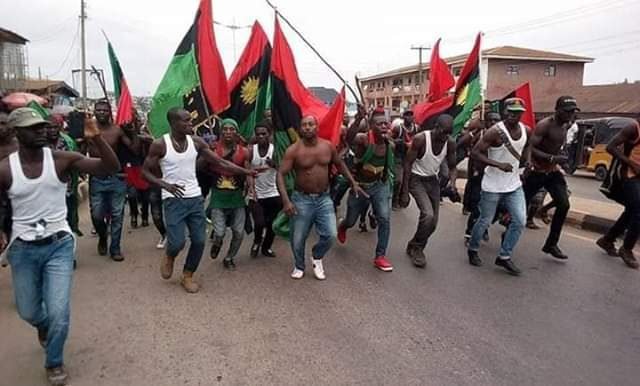
“People in the East see this activity against people branded ESN or IPOB as discriminatory and that is a delicate situation if people you claim to be protecting see your activities as undermining their security and human rights. The country need to reassess what it’s doing in the South East and Nigeria in general. There is no way we will allow a handful of people take about 200 million Nigerian hostage in broad day light across the country. Government has failed in the security of the country and a sensible government will step back and readdress the situation.”
Again he addressed the statement of the Commissioner of Police, Lagos State who made a public revelation that IPOB was planning to attack Lagos. Without a doubt, one cannot help but wonder if such an announcement does not amount to ethnic profiling and incitement. Moreover, if IPOB was planning to attack Lagos, should a Commissioner of Police not be more tactful? Would proper intelligence instead of alarming citizens not have been a better approach?

In his response, Professor Ojukwu said: “Those are clear signs of a failed state and failed governance, where our security agencies have turned into tribal organisations, trying to use the media against one tribe and the other, instead of managing the security. An organised security outfit must have very standard organised intelligence network and once that fails no security agency will survive. It seems our security apparatus has collapsed; that’s why a Commissioner of Police will say such openly. In a sane clime such commissioner of police would have been fired. But we have not had any statement condemning what he said. Such person ought to have been fired within 24 hours.”
On the Minister of Information’s statement that government knows where the kidnappers and bandits are, he said: “We all seem to know where they are.”
“For example just a few days ago we read in the media about ISWAP and Boko Haram fighting in Sambisa forest. Two terrorist groups fighting over a territory in a country where we have a president, legislature and judiciary governing us and no information reached out to us that the security used the weakness in their ranks to attack those two groups in Sambisa forest. Rather we saw the military in the media warning people in the area about the surge in terrorism due to the overpowering of Boko Haram by ISWAP in the territory. You can see that the country has almost totally collapsed. So if the minister says what we all know, it shows clearly that government has lost control of governance in the country.”
But to the average Nigerian, if government has lost control of governance, it does not seem like it’s keen on regaining it. On top of the banditry, terrorism and kidnappings, the activities of killer Fulani herdsmen in the South and in Benue state has led to the death of millions. Yet, when Governors in the South took a unanimous decision to ban open grazing to curb bloodletting, the Attorney General of the Federation (AGF), Abubakar Malami withstood them appearing to be on the side of the now emboldened killer herdsmen. Incidentally, Northern Nigeria has been running a parallel government with their own police since 2003. The media is awash with reports of alcohol laden trucks being destroyed by Hisbah Police notwithstanding that these states receive revenues from the production of alcohol in other parts of the country.
To Ojukwu: “It is a legal issue and the AGF misunderstood the law in what he is saying. It has nothing to do with control of territory. It does not matter who owns a land, whether it is South or North. We have the Land Use Act which has been made a part of the Constitution. Under the Land Use Act, all lands have been given to the state and the issue is clear. If you want to use a land, you apply for it. If you want to transfer a land, you must get the governor’s consent. There is no part of the Constitution that allows anybody to go into a State and take a land without consent. Clearly what the governors need to do is to set a law that anybody engaged in open grazing should be criminalised. You don’t have a right to walk into any land to seize it. But the Land Use Act on its own does not make it a crime. What the state needs to do is to criminalise it. Some northern governors have banned open grazing so the southern governors are not the first to ban open grazing. The statement of the AG made shows clearly that he is playing politics with the lives of many Nigerians.
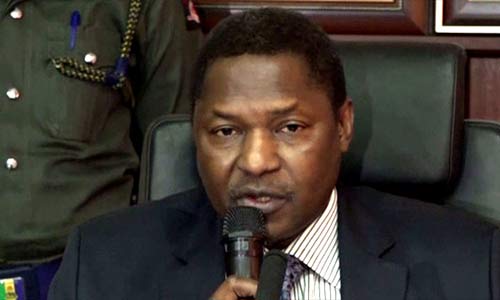
“When responsible leaders come publicly and show dishonesty by fanning tribal wars, these are signs of a failed state. The law is against open grazing. Property ownership is against it. Livelihood is against it.”
Undeniably the Southern States Governors were not the first to speak against open grazing and the ban. The Governor of Kano State, Alhaji Abdullahi Umar Ganduje is one of those who did. What then is the difference between what the Southern Governors said and that of some Northern Governors who earlier spoke against open grazing?
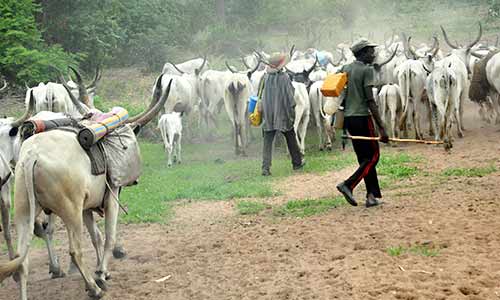
Another issue that has dominated public space over the years is removal of petroleum subsidy. Amidst the hardships Nigerians are going through, State Governors are said to be proposing a hike in the price of fuel to over 400 naira per litre. Here are the Professor’s reactions.
“The problem is complex. It’s not as simple as that. The background to the Governors decision is straight. The country is down economically and financially. We have a regime of subsidising petroleum products in the country and if you listened to the former CBN governor Sanusi where he gave us facts and figures on how much the country spends on payment of subsidy and importing petroleum products. It shows that about 70% of the funds don’t go into supporting subsidy and the country is draining. The dilemma is that there is economic hardship. If you do not plug those corrupt holes through which the funds are siphoned, we may not have the infrastructure, employment and a revamped market. It is better in my own view to cut short and close those gaps where our funds are corruptly siphoned and divert it to proper use. Let the market take care of the petroleum products. The money can be utilised properly for our economic development. The states as at today can’t pay salaries. Some for a year and that’s subsidy money.”
But Prof, what you said is exactly what we have been told countless times there has been fuel hike, this reporter countered. We have heard of subsidy being removed over and over again. That has been a consistent excuse to increase cost of petroleum products at different times. Yet, it does seem that in spite of increase at various times and promises to channel the difference to developmental projects, subsidy has never been removed.
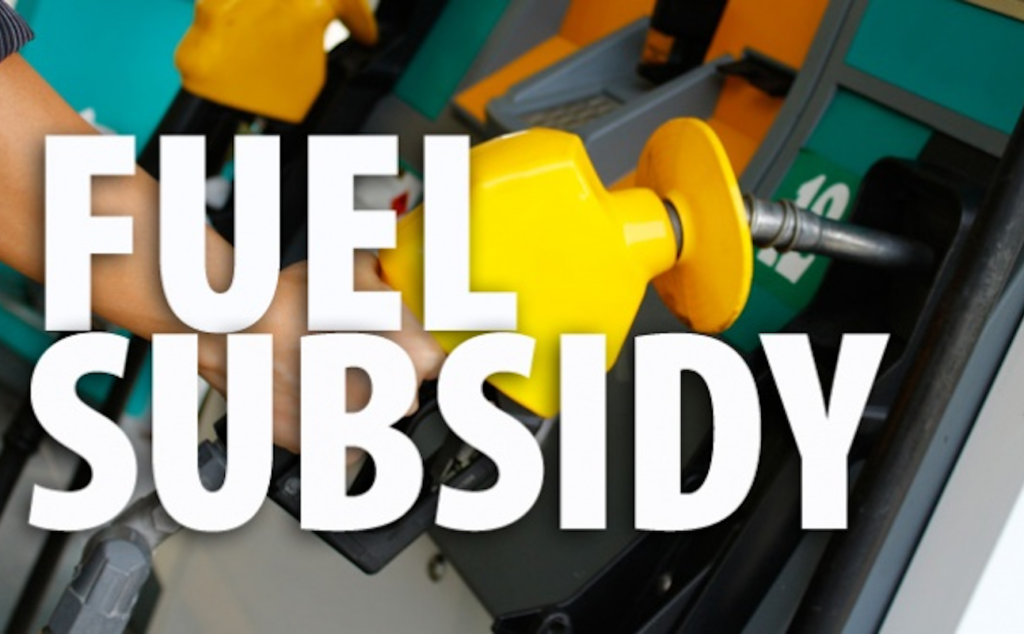
Cutting in, Ojukwu said: “It is the reality of the system. It shows there is a complaint against the removal of fuel subsidy. Labour unions have always put pressure against that short term plan or long term plan and so government caves in, in order to maintain its political base but it has never been removed. They continue to subsidise petroleum price and each time they want to remove it labour comes in. The reality is that if we are refining most of the products we use without subsidy, the effect on the pump price will be minimal.
“Unfortunately over 80% of the petroleum we use is imported, whereas we are the 6th or 10th most producing oil country in the world. And so the imported product can only be sold in Nigeria in accordance with the market price. Our money has been devalued more than 300% and once you devalue, it means the cost of your importation will be higher. So if for example they are importing the products at 100 naira, with this devaluation, it means a litre of petrol will now cost 300 naira and the price has not changed in the stock market at the international community. So if the government was paying 20 naira on subsidy, and be able to sell it at 150 or 145 they were only able to maybe subsidise at 20 naira out of the 150 or 145, though it’s now 300 but it is still being sold at 145. At 300 based on the devalued currency, it means now that government is subsidising the petrol at about 155 naira. So each time our naira devalues the subsidy increases, it is not a static thing.
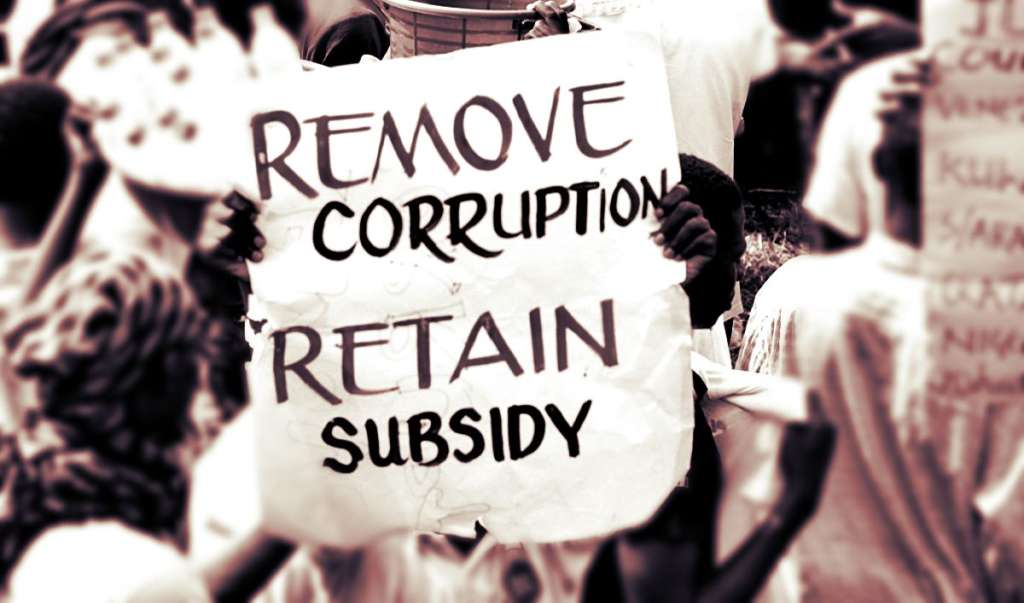
“What the governors are proposing now for me is also not good enough. What they are proposing is a subsidy regime. They have agreed to move the price a little closer to the market price. There will still be some money that government has to pay otherwise you can’t plan it. At whatever price they are putting it, there is no profit. And so if government takes its hands off completely, the price of petrol will be fluctuating until it stabilises based on demand and supply. Importation is the problem and there has been so many opposition to establishing our capacity to produce and refine for ourselves.
“That money government is using to pay for subsidy would have been utilised to make us refine our petrol. So in the long run we will never solve that problem of shifting the price of petrol and get the capacity to produce our petrol. We will continue to suffer it and the value of our currency depreciates. Yet we won’t have our refinery, we won’t create employment and we will not build infrastructure.”
That said, countless reports have shown that our refineries are moribund and beyond redemption. There have been many turnarounds maintenances running into billions of naira that could build new refineries. Rather than build modular refineries our government prefer turnaround maintenances that are not working. They chose to repair refineries that have long been pronounced dead. Government even gave support to Dangote, a private individual to build his refinery rather than construct its own. It is hard to understand. It is also mind boggling that somebody can refine crude and produce fuel in his backyard in the Niger Delta but the country cannot build a modular refinery.
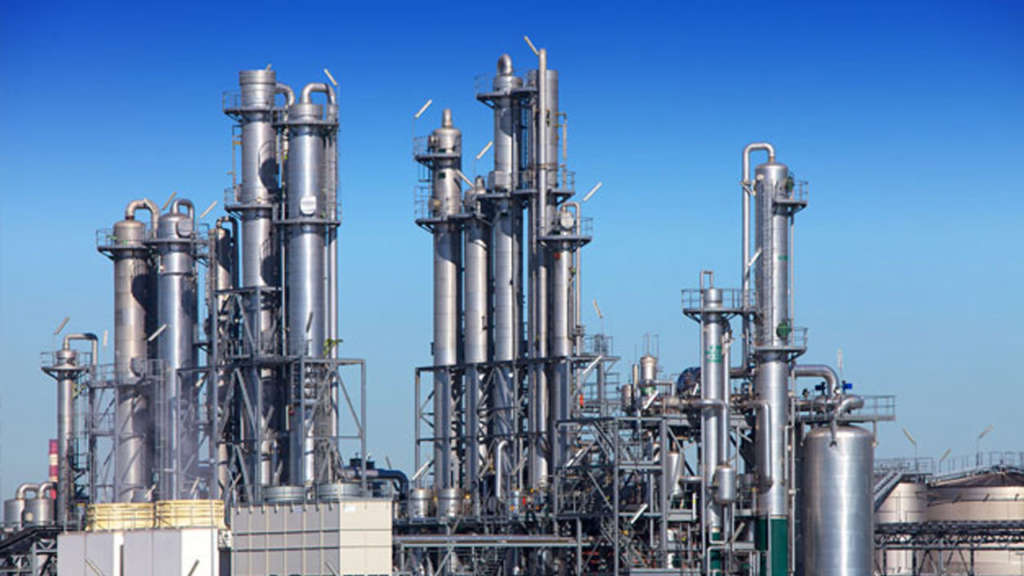
In his response, Ojukwu said: “That is corruption. This is who we are and that is why we have bad governance. If we had a government we would have settled this issue. There is no government anymore in the country. The reason for our incapacity is that the foreign investors that have that capacity are reluctant to come. This is because if you are putting price tag on the products they are producing, there is no way they can make profit. The system must be changed and subsidy removed. That is why subsidy must go. Once you pull out and say subsidy must go, the price of petrol must be decided by demand and supply you will find investors coming.
“Dangote a single individual may have succeeded where government failed but it is not his fault that he has been given monopoly. It is the fault of us and our leaders to allow one person to have such monopoly. But I know that if we don’t have the subsidy regime, a lot of investors will come in. There is a control price on the final product and that control price cannot work. The cost of production is even double what we buy petrol and so nobody will bring his money to do that. No serious person will do that.
“It is clear government cannot run business in Nigeria. Even in small things like alcoholic breweries. Our factories are closed down. Textile mills in all states failed. We failed in hotel management, our airlines, even our secondary schools, and universities. We failed in all of these simple things that don’t need any scientific capacity. Refinery will not work. It has to go to private enterprises and with the state of our nation; the security situation, the subsidy corruption regime all these are things that will prevent investors from investing in our country.

